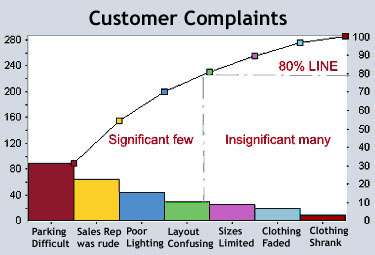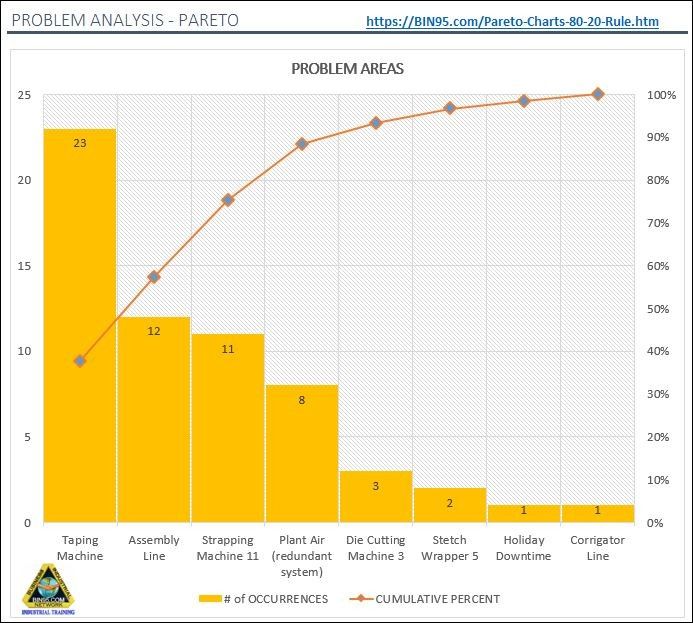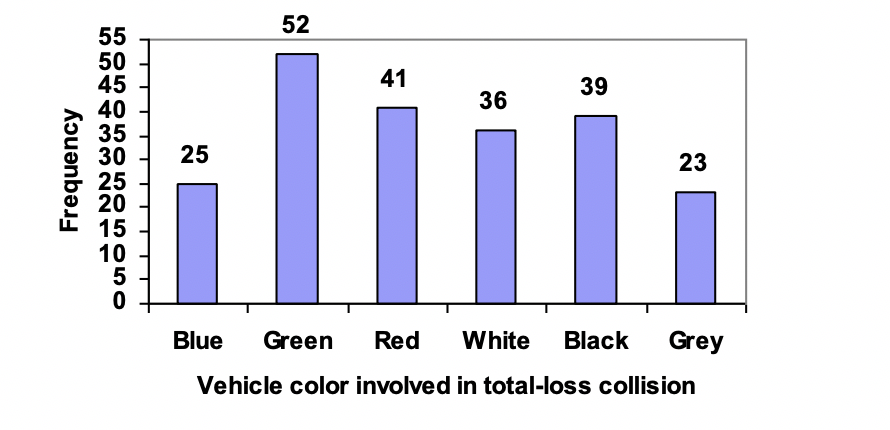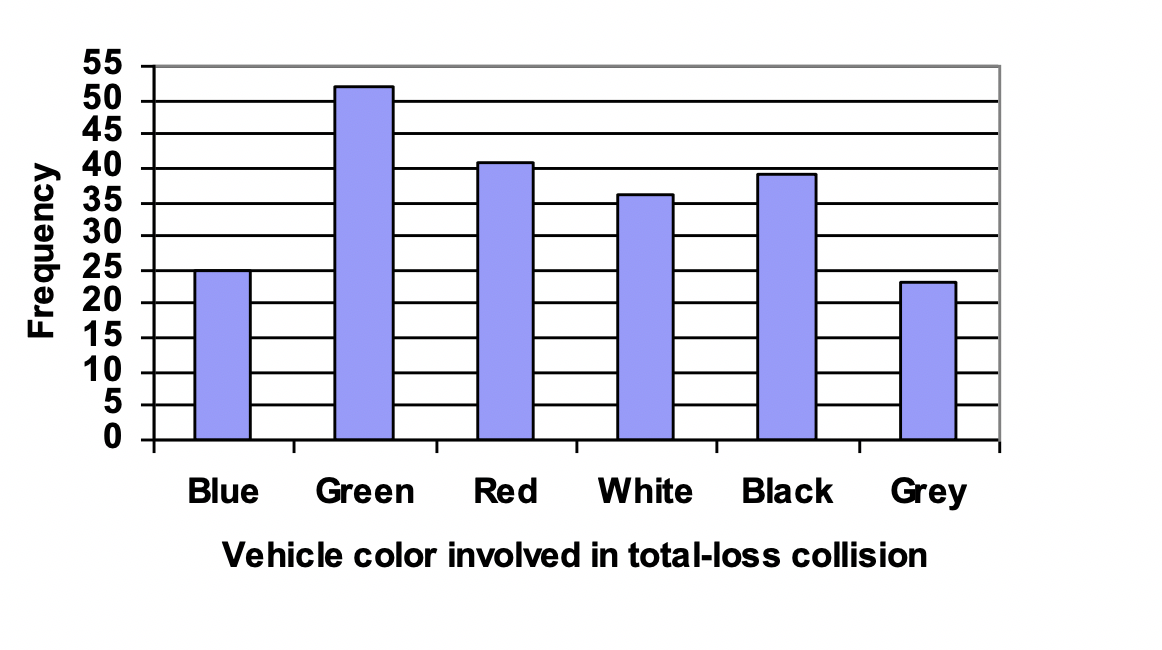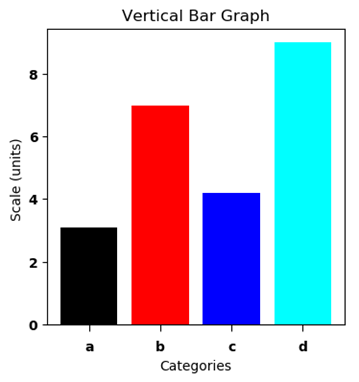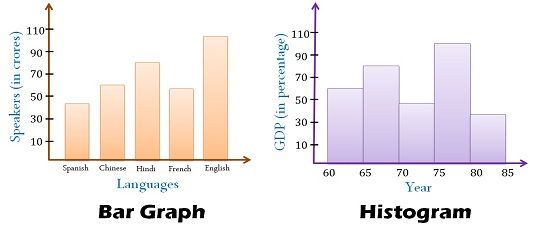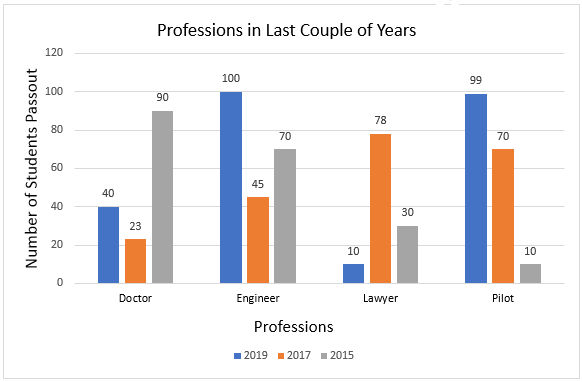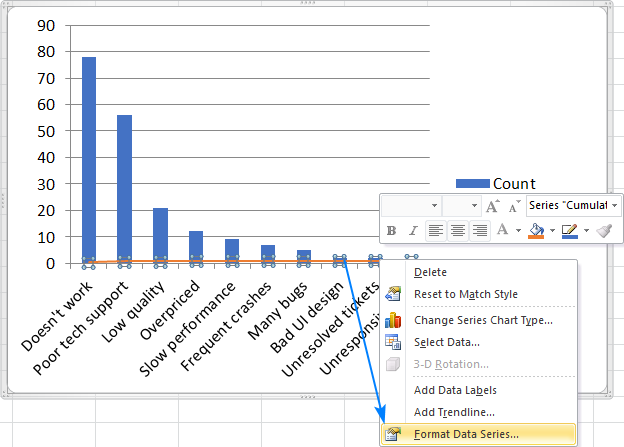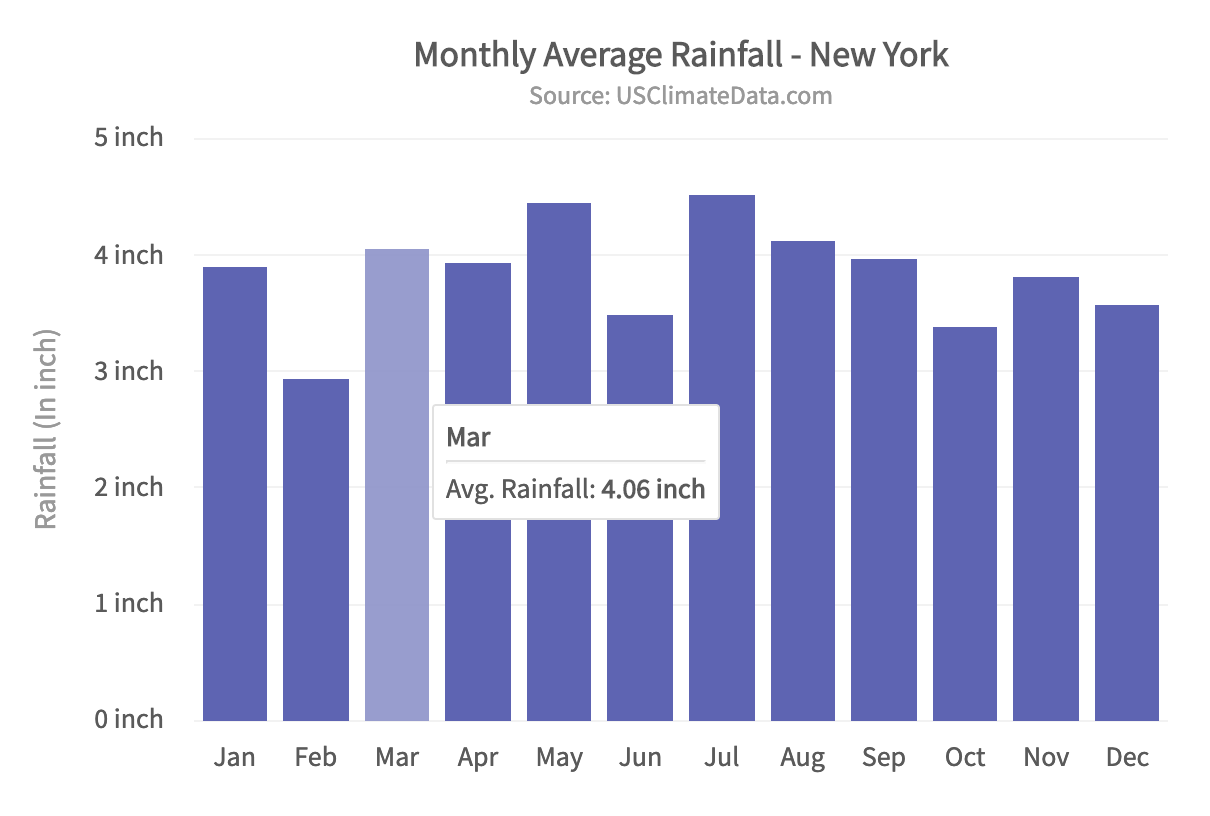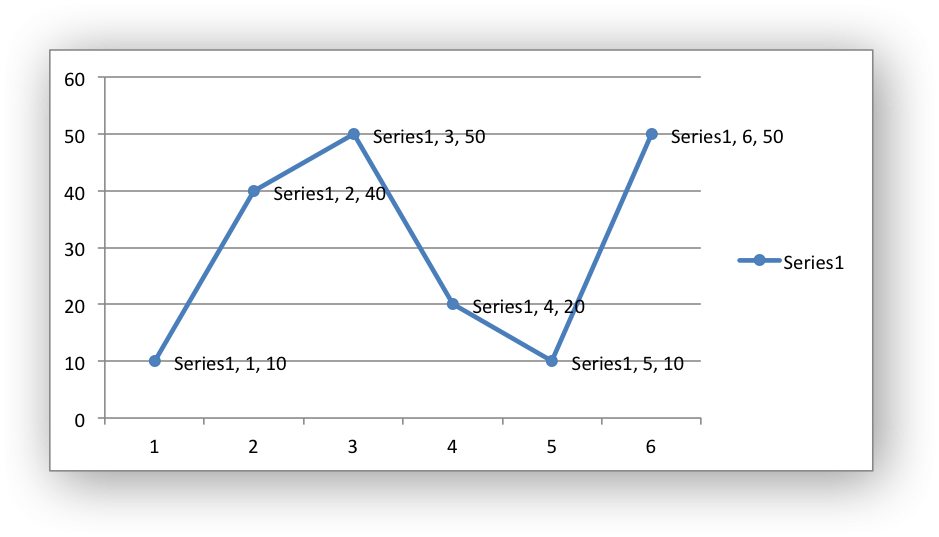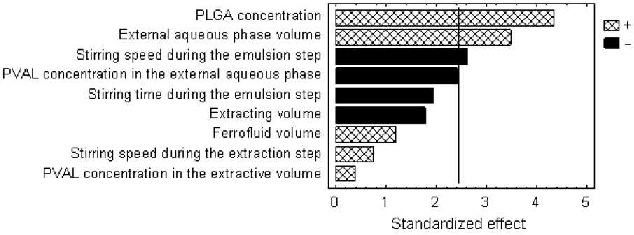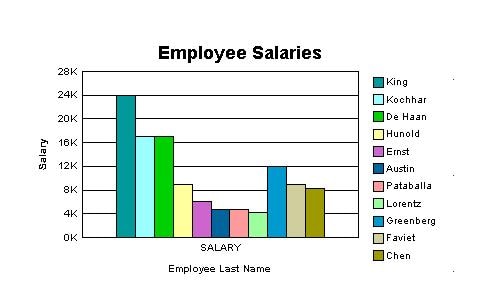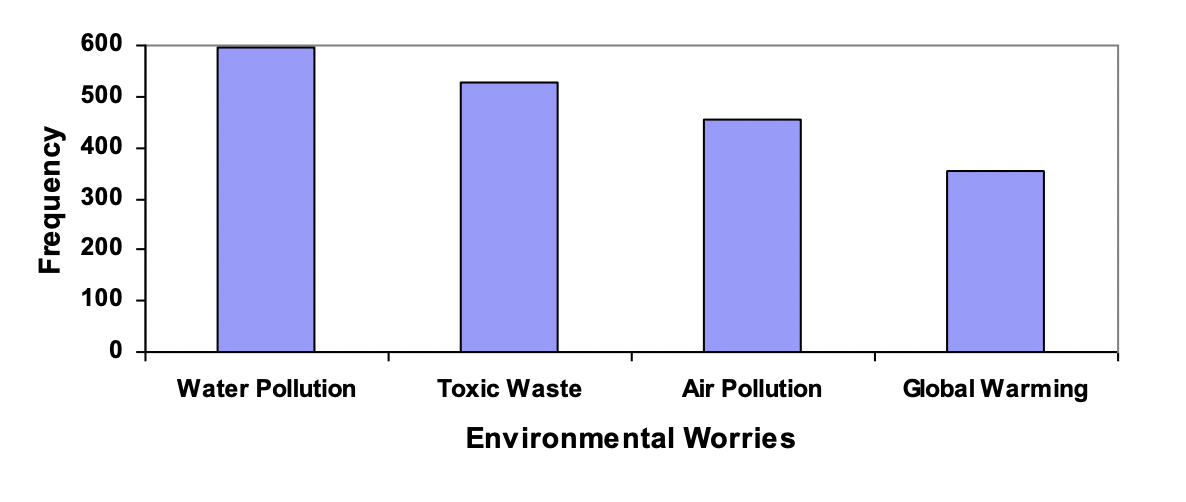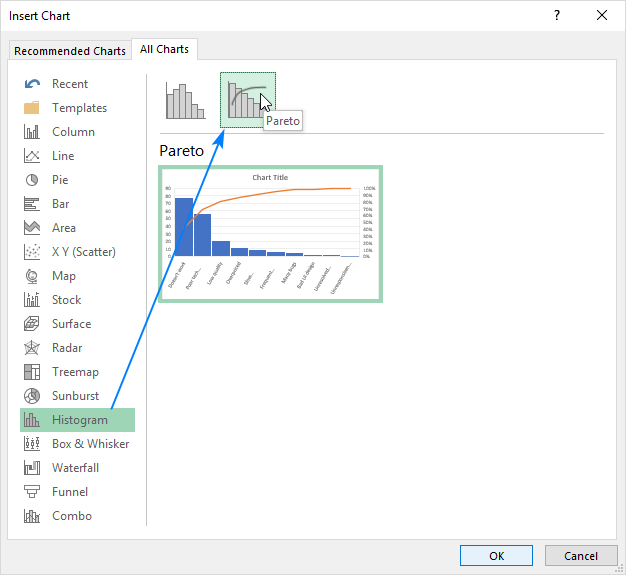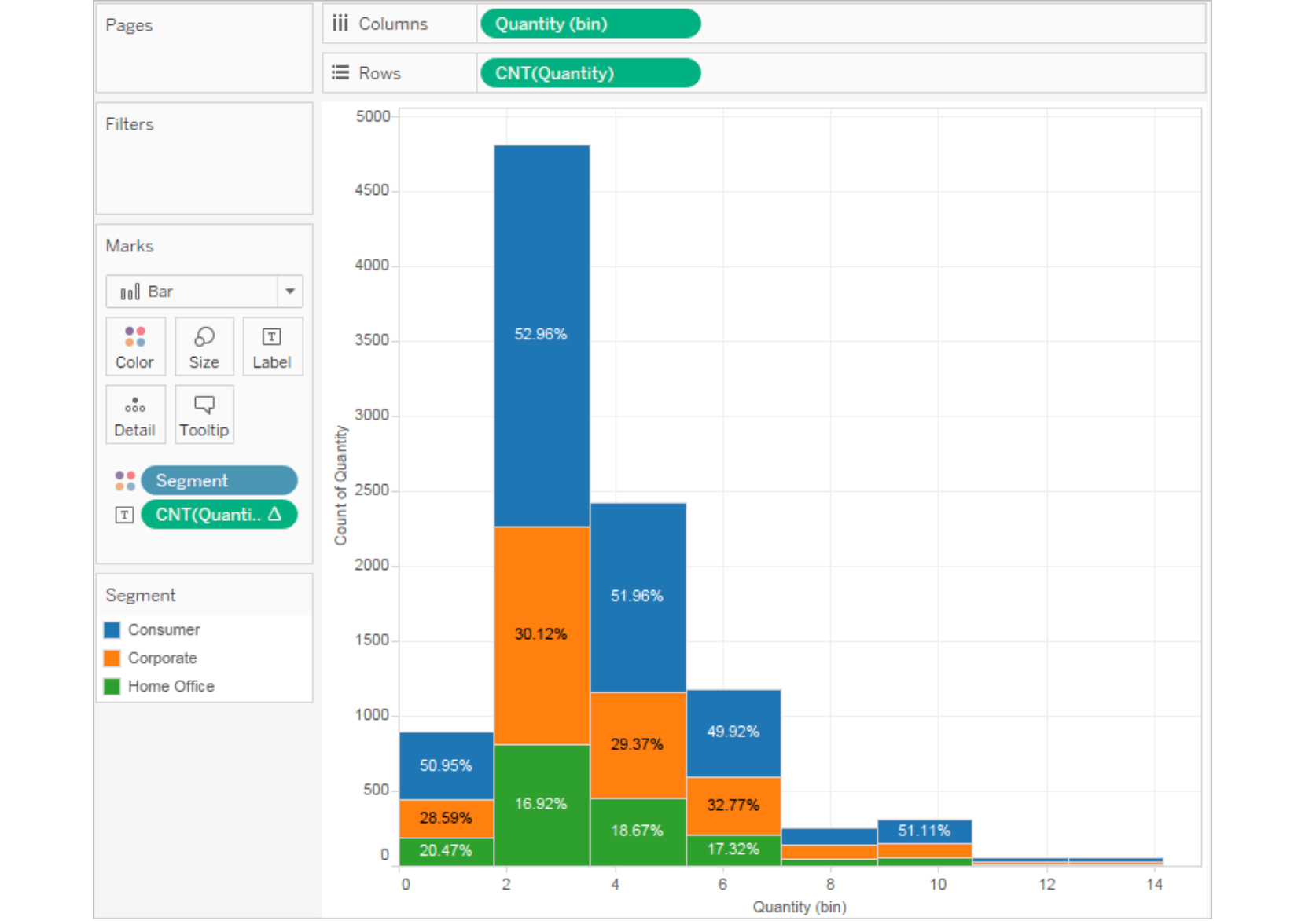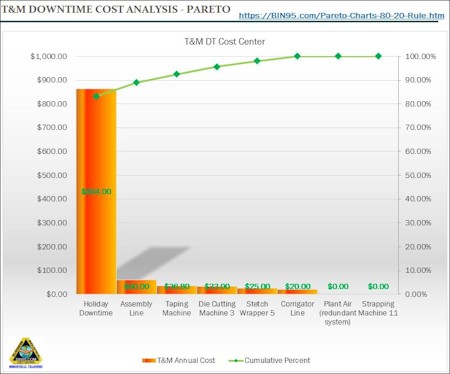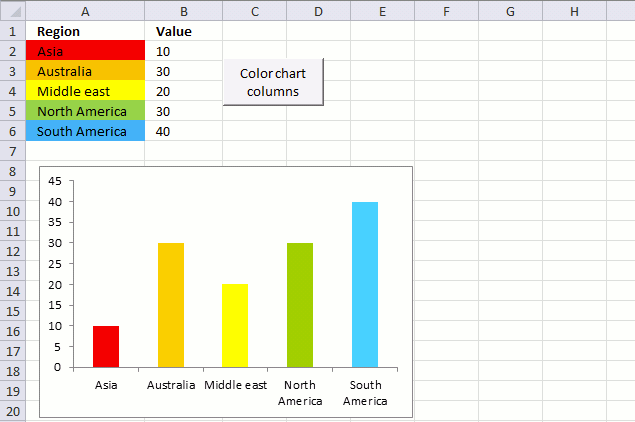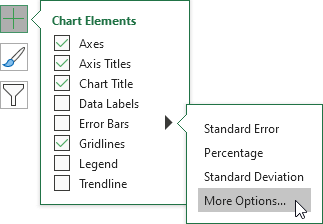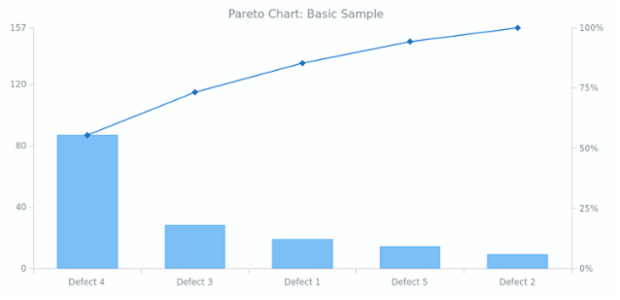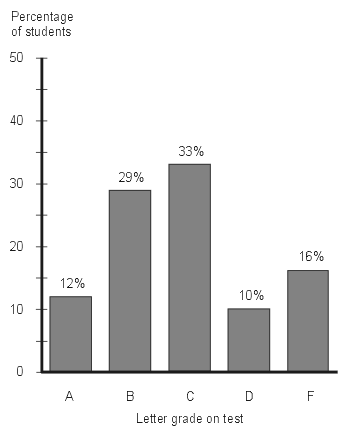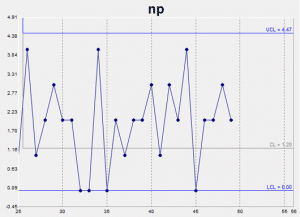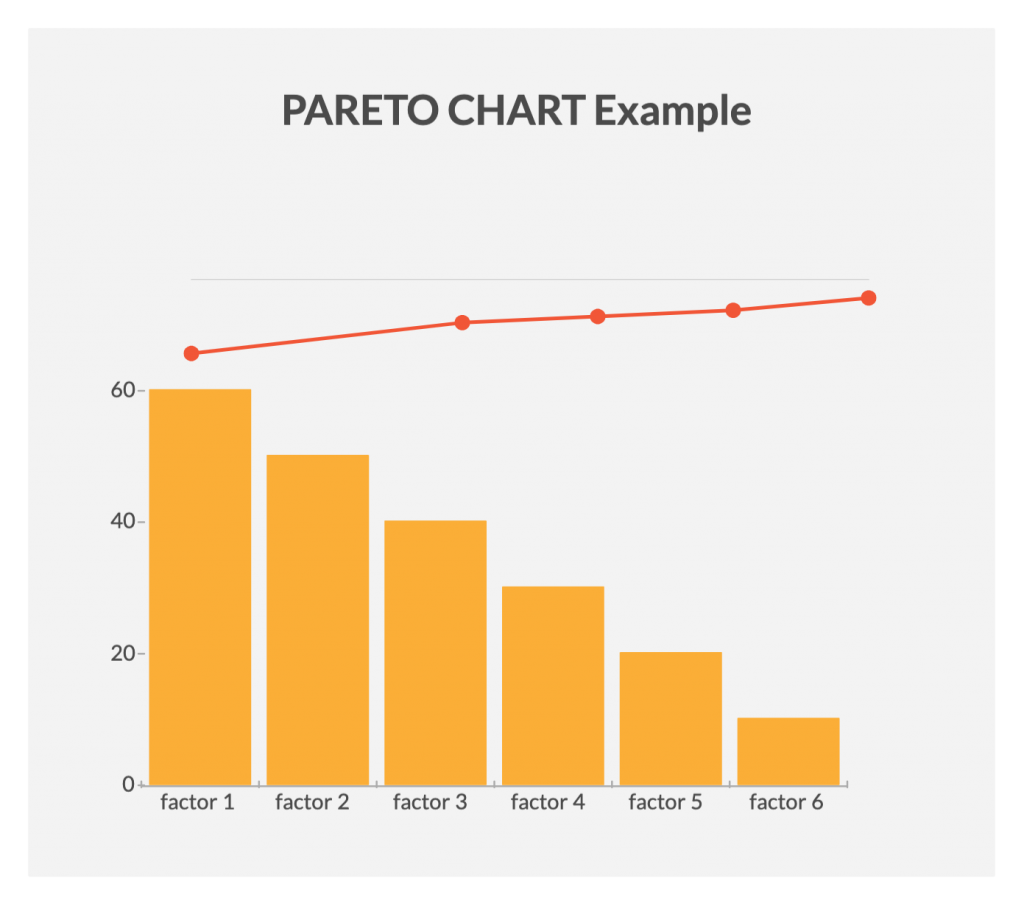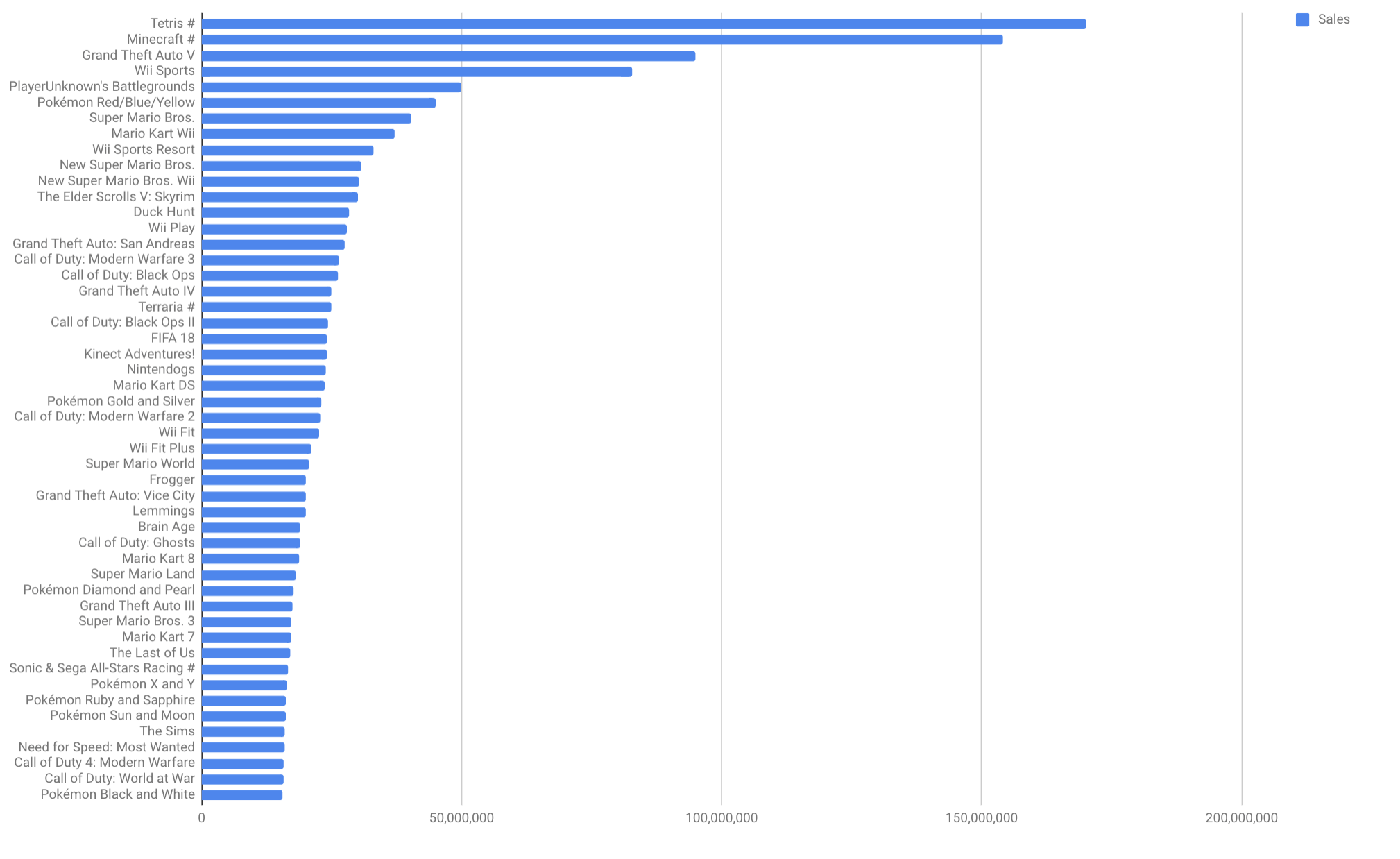How Is A Pareto Chart Different From A Standard Vertical Bar Graph

The bars are positioned in order of decreasing height with the tallest bar on the left.
How is a pareto chart different from a standard vertical bar graph. Pareto charts are extremely useful for analyzing what problems need attention first because the taller bars on the chart which represent frequency clearly illustrate which variables have the greatest cumulative effect on a given system. Since the solution to 4 from 2 2 chapter was answered more than 549 students have viewed the full step by step answer. The bars are the cumulative frequency of all the previous classes o b.
Use the stem and leaf plot to list the actual data entries. How is a pareto chart different from a standard vertical bar graph. How is a pareto chart different from a standard vertical bar graph.
The height of each bar represents frequency or relative frequency o c. A pareto chart named after an italian economist combines a bar chart with a line graph. The bars are positioned in order of decreasing height with the tallest bar on the left.
How is a pareto chart different. The bar chart is different from a histogram in more than one way. The bar chart is different from a histogram in more than one way.
For example the vertical bars need not touch one another as per a histogram. How is a pareto chart different from a standard vertical bar graph. A pareto chart also called a pareto distribution diagram is a vertical bar graph in which values are plotted in decreasing order of relative frequency from left to right.
How is a pareto chart different from a standard vertical bar graph. The bars are positioned in order of decreasing height with the tallest bar on the left. A pareto chart named after an italian economist combines a bar chart with a line graph.
A bar graph is the visual representation of a data set in the form of vertical bars.










